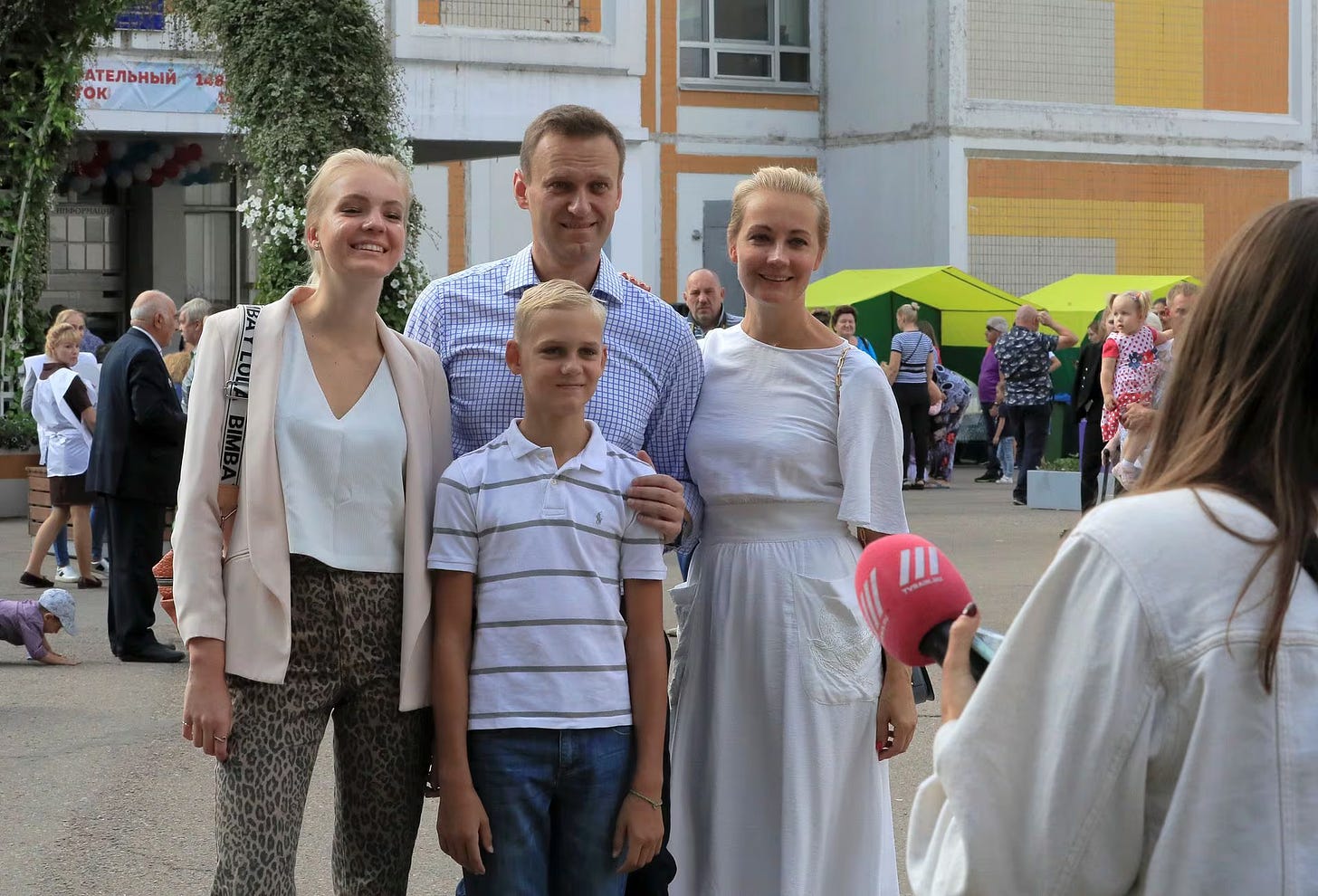Now it is a rare event when someone gives up his life even for the sake of somebody righteous, although possibly for a truly good person one might have the courage to die. - Roman 5:7

The news was not good but not unexpected. Alexei Navalny died in a Russian prison above the Arctic Circle on Friday, July 16, 2024. He held a vision for what he called a Beautiful Russia of the Future. Navalny had several opportunities to leave for the West. Even after he survived poisoning and was successfully treated in Germany, he still decided to return to Russian and to his inevitable fate.
This decision has puzzled many of his supporters and even casual observers. Many reasoned that Navalny, who had called out Putin and the oligarchs on corruption and despotism, could continue this work while safely outside Russia. He decided to continue to be not only a symbol of defiance but a witness to hope for his beloved Russia.
Would he really have been safe outside Russia? According to Freedom House
The Russian government conducts highly aggressive transnational repression activities abroad. Its campaign, which heavily relies on assassination as a tool, targets former insiders and others who are perceived as threats to the regime’s security.
A surprisingly common tactic is assassination; former intelligence officer Alexander Litvinenko was successfully killed via radiation poisoning in 2006,3 while a nerve agent was used in the attempted assassination of former intelligence officer Sergei Skripal and daughter Yulia in 2018.4 At a minimum, in Ukraine, Bulgaria, Germany, and the United Kingdom, the Kremlin has shown a willingness to kill perceived enemies abroad.5 These attacks also come against the backdrop of numerous unexplained deaths of high-profile Russians in exile, their business partners, and other potential targets of the Russian state
Russian history is replete with dissidents who were killed or made it into exile. One returned from exile and brought untold death and suffering to the world.
Lenin was an exile in France when the Germans decided to help him get back into a Russia and supported his effort to overthrow Czar Nicholas. The plan was to end World War I by ending the Romanov Dynasty. As we know, the Germans did not anticipate that establishing communism would lead to even more wars of unprecedented death and destruction around the world, including one that would swallow them up whole.
Ivan Bunin, the first Russian author to be awarded the Nobel Prize in literature, was a refugee from Lenin’s Bolshevik revolution. In 1924, he published the "Manifesto of the Russian Emigration."
“There was Russia, inhabited by a mighty family, which had been created by the blessed work of countless generations. ... What was then done to them? They paid for the deposal of the ruler with the destruction of literally the whole home and with unheard of fratricide. ... A bastard, a moral idiot from the birth, Lenin presented to the World at the height of his activities something monstrous, staggering, he discorded the largest country of the Earth and killed millions of people, and in the broad day-light it is being disputed: was he a benefactor of the mankind or not?”
Interestingly, Bunin did not support the intervention of foreign countries in the Russian Civil War, even if it would have made it possible for him to return. He felt that the Russians should sort it out themselves. Russia had a centuries long history of invasions and even those fleeing the Bolshevik Revolution were still entranced with Mother Russia and protecting her. Re-inventing themselves as something other than Russian was not conceivable. American culture has gotten a taste of this in Boris Pasternak’s novel and the movie, Dr. Zhivago. A physician and poet who refuses to follow his family into exile, Zhivago suffers a marginalized life. Saved only by his Bolshevik brother, his profession as a physician, and his poetry, Zhivago lives the scripted Russian tragedy.
However, Alexei Navalny has gone a step further. His decision to return to Russia and continue his high profile was made possible by contemporary social and digital media. Instead of returning and disappearing into the infamous Lefortovo Prison in Moscow, as happened to thousands of people, digital media made it possible for him to pursue his political work and his criticism of Putin. Over time of course, the situation became untenable, but even as he was taken prisoner, and his lawyers were jailed, his example of defiance and his vision for a better Russia were still seen on the world stage.
Navalny’s death ends Russia’s tenuous experiment with a republic after the collapse of the Soviet Union. It marks a successful transition point in a process leading to a submersion and reversion into a totalitarian abyss. Putin’s project is to return Russia to her 19th century greatness by reclaiming those lost provinces of the empire, the largest of which is Ukraine. Certainly, Russia’s parliamentary institutions did not fall of themselves but because they could not overcome Putin’s deft moves over a twenty-year period to emerge from being an unpopular candidate to being president for life. Putin played to the Russian loss of their superpower status, their fear of the west, and their deep abiding insecurity on the steppes of Eurasia.
Has Russia gained another saint? Will there be Navalny icons? Given the alignment of the Russian Orthodox Church with the Russian state, Navalny’s canonization will not happen any time soon. However, the question remains. Is Alexei Navalny a prophet or a martyr? The fate of either is too often the same. Never-the-less, Navalny witnessed to his prophetic vision of a Good Russia that can emerge, even though it seems that he held his banner aloft from the wheelhouse of the Titanic.



